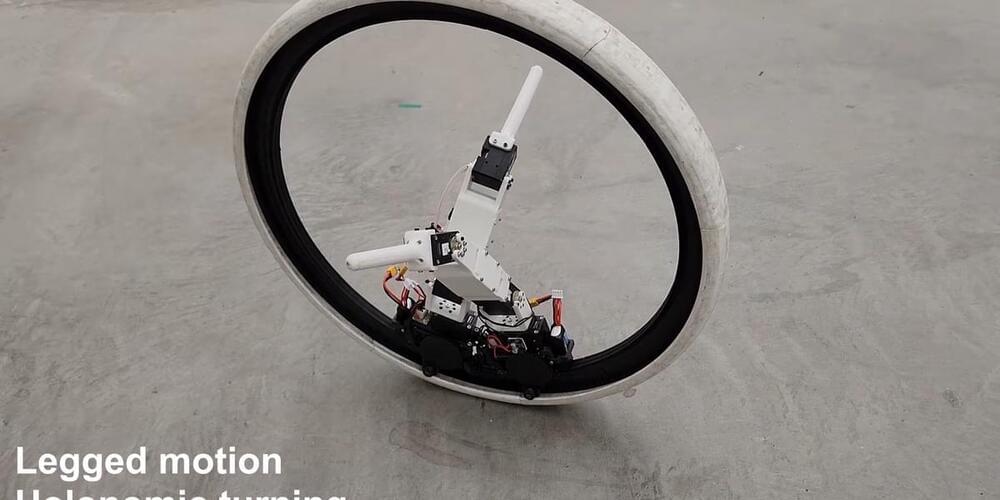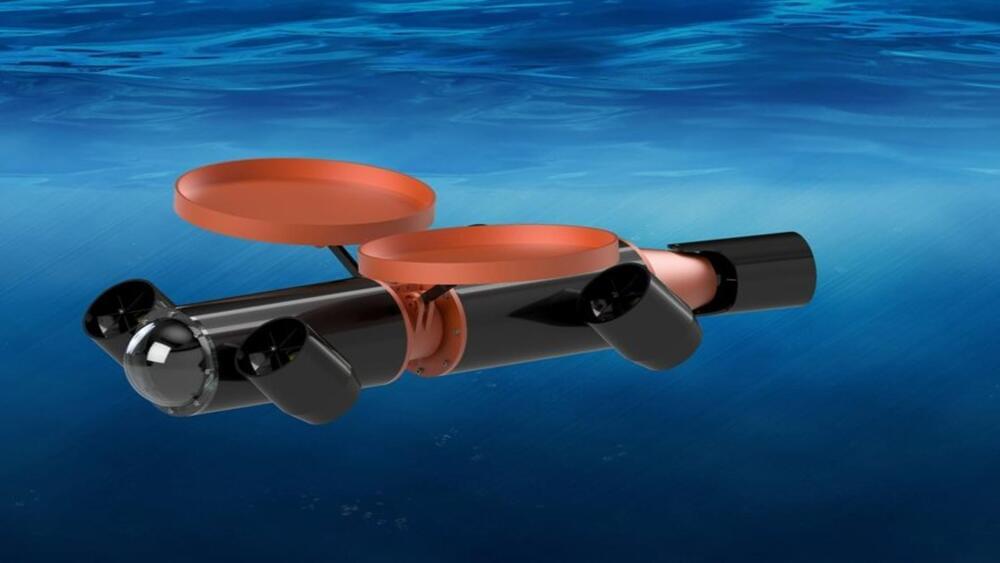A new report says that Apple bought “up to” 32 AI startups in 2023, more artificial intelligence acquisitions than any other tech giant.


The first human patient has received an implant from Neuralink, Elon Musk’s computer-brain interface company. Andrew Chang explores the complexity of the N1 implant, how it’s working in clinical trials, and what Neuralink is trying to achieve with the device.
»»» Subscribe to CBC News to watch more videos: http://bit.ly/1RreYWS
Connect with CBC News Online:
For breaking news, video, audio and in-depth coverage: http://bit.ly/1Z0m6iX
Follow CBC News on TikTok: https://bit.ly/3TnHioe.
Follow CBC News on Twitter: http://bit.ly/1sA5P9H
Find CBC News on Facebook: http://bit.ly/1WjG36m.
Follow CBC News on Instagram: http://bit.ly/1Z0iE7O
Download the CBC News app for iOS: http://apple.co/25mpsUz.
Download the CBC News app for Android: http://bit.ly/1XxuozZ
»»»»»»»»»»»»»»»»»»

Video Friday is your weekly selection of awesome robotics videos, collected by your friends at IEEE Spectrum robotics. We also post a weekly calendar of upcoming robotics events for the next few months. Please send us your events for inclusion.
Cybathlon Challenges: 2 February 2024, ZURICH ICRA 2024: 13–17 May 2024, YOKOHAMA, JAPAN
Enjoy today’s videos!


BYD’s announcement of a substantial upgrade to its intelligent driving system signals a notable advancement in its efforts to improve this technology. Scheduled for March 30th, this update signifies a significant step forward for BYD in the realm of advanced driver assistance systems (ADAS). The upgrade will further enhance its Navigation On Autopilot (NOA) or its internally known Urban Navigation Assistance (UNA) system in cities across China.
The upgrade was alluded to in 2023 with the BYD Denza N7 with its advanced lidar system and came on the heels of recent improvements to Xpeng’s XNGP intelligent driving system. Telsa has also been a strong competitor in the intelligent driving race, with announcements last year aiming to improve its FSD system. According to sources, the initial rollout of BYD’s Urban Navigation Assistance (UNA) system is slated for March 30th, starting with the N7 model among its existing lineup of over 20 vehicles.
A coating that can hide objects in plain sight, or an implant that behaves exactly like bone tissue—these extraordinary objects are already made from “metamaterials.” Researchers from TU Delft have now developed an AI tool that not only can discover such extraordinary materials but also makes them fabrication-ready and durable. This makes it possible to create devices with unprecedented functionalities. They have published their findings in Advanced Materials.
The properties of normal materials, such as stiffness and flexibility, are determined by the molecular composition of the material, but the properties of metamaterials are determined by the geometry of the structure from which they are built. Researchers design these structures digitally and then have it 3D-printed. The resulting metamaterials can exhibit unnatural and extreme properties. Researchers have, for instance, designed metamaterials that, despite being solid, behave like a fluid.
“Traditionally, designers use the materials available to them to design a new device or a machine. The problem with that is that the range of available material properties is limited. Some properties that we would like to have just don’t exist in nature. Our approach is: tell us what you want to have as properties and we engineer an appropriate material with those properties. What you will then get is not really a material but something in-between a structure and a material, a metamaterial,” says Professor Amir Zadpoor of the Department of Biomechanical Engineering.

ScrubMarine, a pioneering marine sector startup, is diving headfirst into the inaugural cohort of Heriot-Watt University’s DeepTech LaunchPad. The company, led by engineer Clyne Albertelli, is making waves with its underwater robot designed to combat biofouling—a persistent challenge for the shipping industry.
Biofouling is the accumulation of microorganisms, plants, and algae on marine vessels. It poses significant threats to hull structures and propulsion systems.
ScrubMarine’s autonomous underwater robot is on a mission to scrub away these challenges, promising to cut fuel costs, reduce maintenance needs, and minimize environmental impact for ships, boats, and submarines.
A coating that can hide objects in plain sight, or an implant that behaves exactly like bone tissue. These extraordinary objects are already made from metamaterials. Researchers from TU Delft have now developed an AI tool that not only can discover such extraordinary materials but also makes them fabrication-ready and durable. This makes it possible to create devices with unprecedented functionalities.
They published their findings in Advanced Materials (“Deep Learning for Size-Agnostic Inverse Design of Random-Network 3D Printed Mechanical Metamaterials”).
The properties of normal materials, such as stiffness and flexibility, are determined by the molecular composition of the material, but the properties of metamaterials are determined by the geometry of the structure from which they are built. Researchers design these structures digitally and then have it 3D-printed. The resulting metamaterials can exhibit unnatural and extreme properties. Researchers have, for instance, designed metamaterials that, despite being solid, behave like a fluid.
Microsoft is back with another Super Bowl ad, this time for its AI chatbot called Copilot. And it kind of sucks.
SingularityNET’s community leaders reflect back on last year’s progress, ecosystem updates, as well as the massive push towards building beneficial AGI in 2024 and beyond.
Register for our BGI Summit today by visiting: https://bgi24.ai.
#agi #decentralizedai #singularitynet.
–
SingularityNET is a decentralized marketplace for artificial intelligence. We aim to create the world’s global brain with a full-stack AI solution powered by a decentralized protocol.
We gathered the leading minds in machine learning and blockchain to democratize access to AI technology. Now anyone can take advantage of a global network of AI algorithms, services, and agents.
Website: https://singularitynet.io.